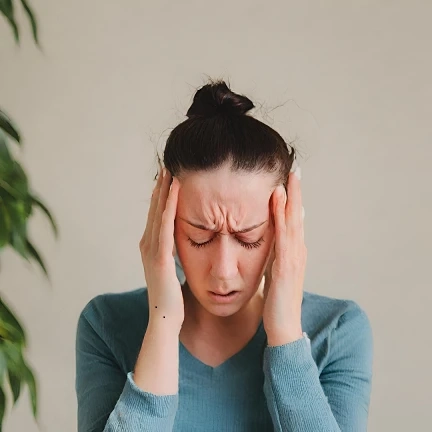Migraines are more than simply headaches; they may be crippling, limiting your ability to work, socialize, and enjoy life to its fullest. While there is no foolproof method for fully eliminating migraines, there are numerous things you can do to help avoid them or minimize their frequency and intensity. Here are some important tactics that everyone should understand:
Identify Triggers:
One of the first stages in migraine prevention is to identify your triggers. Stress, hormonal fluctuations, certain meals (such as aged cheeses, processed meats, and artificial sweeteners), insufficient sleep, dehydration, and environmental conditions like bright lights or strong scents are also common causes. Keeping a migraine journal allows you to identify probable causes and patterns over time.
Maintain a Consistent Sleep Schedule:
Some people have migraines as a result of a lack of sleep or changes in their sleep habits. Aim for a consistent sleep routine, going to bed and getting up at the same time every day, including weekends. Create a peaceful evening ritual to help you unwind and sleep better.
Stay Hydrated:
Dehydration can cause migraines in many people. Make sure you drink enough water throughout the day, especially in hot weather or when exercising. Excessive coffee and alcohol use can lead to dehydration.
Manage stress:
Stress is a common cause of migraines. Add stress-reduction practices to your regular routine, such as mindfulness meditation, deep breathing exercises, yoga, or progressive muscle relaxation. Finding good stress-management strategies can help lessen the frequency and intensity of migraines.
Eat a balanced diet.
Certain meals and beverages can cause migraines in vulnerable people. While triggers differ from person to person, it is generally suggested to have a well-balanced diet high in fruits, vegetables, healthy grains, and lean meats. Limit your consumption of processed foods, artificial additives, and recognized migraine triggers.
Exercise Regularly:
Some people find that regular physical exercise helps to minimize the frequency and intensity of migraines. Aim for 30 minutes of moderate-intensity activity on most days of the week, such as brisk walking, cycling, swimming, or dancing. Make sure you select things that you like and can continue with in the long run.
Practice Relaxation Techniques:
Incorporating relaxation methods into your regular routine helps reduce stress and tension, perhaps preventing migraines. Tai chi, progressive muscle relaxation, guided imagery, and biofeedback are all exercises that can help you relax and minimize your chances of getting a migraine.
Avoid Skipping Meals:
Some people get migraines after skipping meals or fasting for lengthy periods of time. To keep your blood sugar constant, eat frequent, balanced meals and snacks throughout the day. Keep healthy snacks on hand to avoid hunger-related headaches.
Limit Exposure to Environmental Triggers:
Bright lights, loud noises, strong scents, and weather changes can all cause migraines in certain people. Pay attention to your surroundings and take precautions to limit your exposure to potential triggers whenever feasible. This might include wearing sunglasses outside, utilizing earplugs in noisy surroundings, and avoiding strong odors.
Consider Medication Options:
In addition to lifestyle changes, your doctor may prescribe medication to help prevent migraines. These may include preventative medication used on a regular basis to lessen the frequency and severity of attacks, as well as acute medications used to treat migraines as they occur. Discuss your treatment choices with your healthcare practitioner to decide the best method for you. Topiramate (Topamax), also known as Topamac, is a migraine prevention medicine that has been shown to be helpful to a considerable number of patients. Topiramate is an anti-epileptic medication used to treat several kinds of epilepsy. It can also help avoid headaches. Topiramate is approved for use alone in treating adults and children aged six and above. It can be used in conjunction with other anti-epileptic medications for adults and children aged 2 years or older. It is offered in tablet and sprinkle formulations, with a focus on children.
In conclusion, while completely avoiding migraines may be impossible, adopting five crucial actions into your daily routine will help minimize the frequency and intensity of migraine episodes. Identifying triggers, maintaining healthy behaviors, managing stress, and exploring pharmaceutical alternatives can all help you improve your quality of life and reduce the severity of migraines. Remember to visit your healthcare practitioner for individualized advice and treatment suggestions based on your specific requirements.



